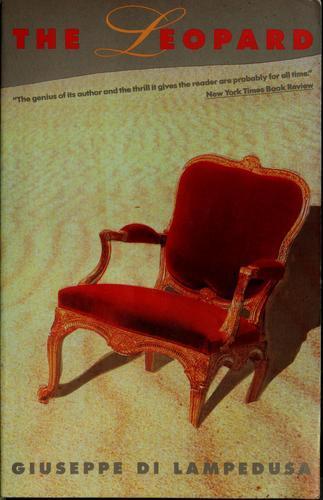cretinodicrescenzago ha recensito Il Gattopardo di Giuseppe Tomasi di Lampedusa
Il romanzo che mi ha fatto innamorare della Sicilia
5 stelle
Lessi per la prima volta Il gattopardo a scuola nel lontano 2011, e mi piacque assai; ora l'ho ripreso in mano perché avevo voglia di un "Grande Romanzo di Una Volta" e ho deciso di rileggere un vecchio favorito (cosa che faccio raramente); si conferma un capolavoro. Sì, il conflitto è molto sottile e sta fondamentalmente nei monologhi interiori del protagonista di fronte agli incidenti domestici del giorno. Indubbio, il lessico è mediamente molto aulico e i riferimenti metaletterari abbondano, ergo ci vuole un'enciclopedia a portata di mano. Ma proprio per questo ne viene fuori un romanzo d'altissima qualità che bilancia egregiamente il sentirsi "dentro" la testa di un'altra persona in un altro spazio tempo con lo "stare a sentire" la voce narrante melliflua dell'autore – due effetti estetici che, nella mia esperienza, sono quasi sempre mutuamente esclusivi (cfr. l'esito infelice del volume IV de I Mabinogion). E poi, …
Lessi per la prima volta Il gattopardo a scuola nel lontano 2011, e mi piacque assai; ora l'ho ripreso in mano perché avevo voglia di un "Grande Romanzo di Una Volta" e ho deciso di rileggere un vecchio favorito (cosa che faccio raramente); si conferma un capolavoro. Sì, il conflitto è molto sottile e sta fondamentalmente nei monologhi interiori del protagonista di fronte agli incidenti domestici del giorno. Indubbio, il lessico è mediamente molto aulico e i riferimenti metaletterari abbondano, ergo ci vuole un'enciclopedia a portata di mano. Ma proprio per questo ne viene fuori un romanzo d'altissima qualità che bilancia egregiamente il sentirsi "dentro" la testa di un'altra persona in un altro spazio tempo con lo "stare a sentire" la voce narrante melliflua dell'autore – due effetti estetici che, nella mia esperienza, sono quasi sempre mutuamente esclusivi (cfr. l'esito infelice del volume IV de I Mabinogion). E poi, venendo ai "meri" contenuti, ci sono i banchetti da far venire l'acquolina in bocca, il sarcasmo perfido rispetto alle cattiverie familiari e di paese, gli arredi rococò che ti verrebbe voglia di comprare per rifare il salotto, i paesaggi della Sicilia che sono obiettivamente spettacolari, e certe meditazioni sulla mortalità che secondo me è doveroso leggersi dai 20 anni in su, perché c'è sempre bisogno di un memento mori. Il principe Tomasi non sarà vissuto abbastanza per vedere il proprio successo, ma per parte mia si è guadagnato l'immortalità degli artisti.




